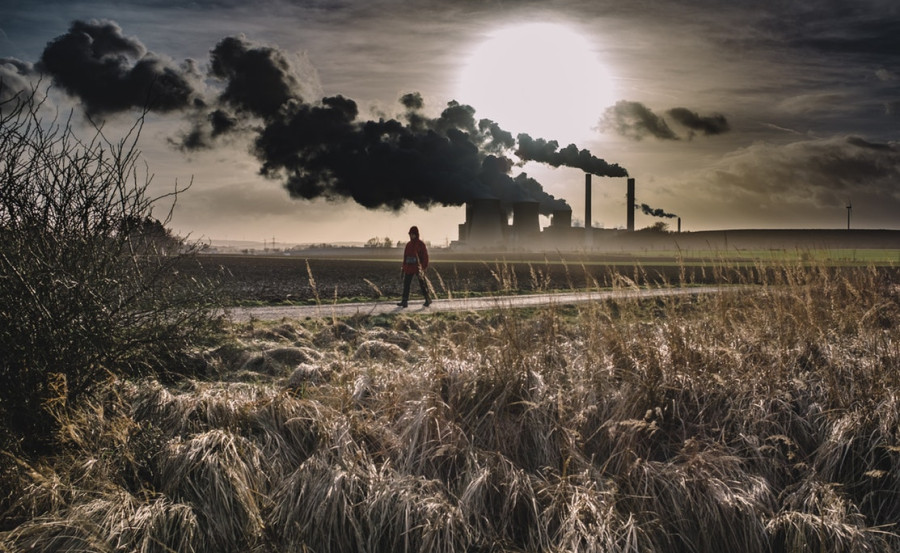Opinion
Digging for data
Nepal needs an open data policy to walk the climate talk
Prabin Rokaya
It is not an unknown fact that Nepal is prone to a multitude of natural and human induced disasters. Every year, natural disasters result in countless lost lives and damages to properties—resulting in perpetual setbacks to the country’s socio-economic development.
According to the Global Climate Risk Index 2019, which quantifies the effects of extreme weather events in terms of vulnerabilities and economic losses, Nepal was the fourth most affected countries in 2017,with 164 human casualties and economic losses that add up to more than 1,900 million in US$ Purchasing Power Parity (PPP). This translates to about 2.412 percent of the losses per unit in Nepal’s Gross Domestic Product (GDP). As global warming continues to emerge as a major climate threat, the consequences of climate-related natural disasterswill pose unprecedented challenges to human well being and development.
Fortunately, climate change has been a top priority for the government. Recently, President Bidhya Devi Bhandari—along with the Minister for Forest and Environment, Shakti Bahadur Basnet—attended the 24th the United Nations Climate Change Conference in Poland. In her statement, the president highlighted how Nepal has been disproportionally affected by climate change impacts. Planning is also underway for a climate summit in Sindhupalchowk, which will be inaugurated by the prime minister and will see the presence of chief ministers, ministers, and lawmakers from both federal and provincial levels as well as chiefs, deputy chiefs and members of district coordination committee. These events are indicators of the government’s demonstrated commitment.
But there is much to be desired. Although, political commitment is a must, climate change mitigation and adaptation issues cannot be fully addressed by political will or government commitment alone. It needs to be supplemented with partnership and collaboration from different stakeholders. But, foremost, it needs an understanding of the issue and quantification of the problem. Without proper research and data, we can neither fully characterise the pressing challenges nor identify appropriate solutions.
Science, technology and innovation are the pillars of development. Science is valued by society across the globe because the application of scientific knowledge helps to satisfy human needs and the overall improvement of human wellbeing. For scienceand innovation to foster, we need an enabling environment supported by friendly policies, adequate investment and skilled human resources. But we all are very familiar with the current status of the environment (or lack thereof) for scientific research in Nepal. Research and publication track records of professors and researchers in Nepal are often criticised but we never take the time to reflect and directly address the real barriers to advance science. Lack of adequate quality-controlled data is perhaps one of the biggest challenges in pursuing environmental research in Nepal. It is true that we do not have enough measuring stations across the country. We can probably blame remote terrains and inadequate budget and human resources for that. But it is disheartening to see that, even the data that is available is not publicly accessible or is available only after coughing up a hefty fee.
While the world has moved towards celebrating open government and open data policies, we are moving in reverse by restricting the use of environmental data with unreasonable price tags. This point of contention has been a constant frustration for many Nepali scholars and foreigners who want to pursue research in Nepal. Recently, some Nepali academics, researchers and students met in Washington D.C during the 2018 fall meeting of the American Geophysical Union. They were either conducting research or were interested in pursuing research in Nepal but had been met with frustratingbureaucratic and financial barriers to obtaining hydrological and meteorological data. It can be argued that it costs money to collect the data thus, the fee is justified. But we should not forget that in the first place, the data was collected with tax payers’ money. The logic is questionable:government agencies use citizens’ tax money to collect data but the public has to pay an additional fee to access it?
This issue extends beyond environment field. Nepal needs to foster an enabling and accessible environment for scientific research in all sectors to progress and prosper. If the government agencies do not have adequate resources to conduct research, they should at least create an enabling environment for others. It is often perceived that research benefits only the researchers (one government employee unapologetically hinted this to me in one of our recent conversations).
While it is true that good research and publication track records usually help researchers advance their careers, the societal benefits largely outweigh any individual accomplishments. If a hydrologist develops an operational flood forecasting system, its usefulness would be immeasurable compared to researchers’ success.
As climate change is happening in real time, our priority should be in collecting data, analysing the results, and communicating the findings to decision makers and the public. Participating at International climate change conferences is one thing—but at the end of the day, we need science and data to support our statements and guide our actions. Perhaps, we can start with an open data policy.
Rokaya is a researcher at The Global Institute for Water Security




 19.12°C Kathmandu
19.12°C Kathmandu










